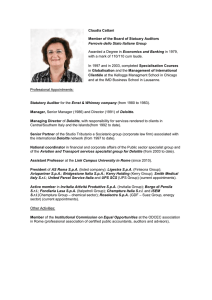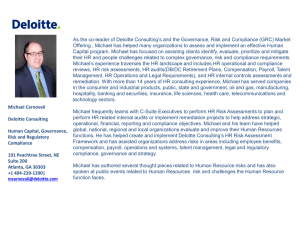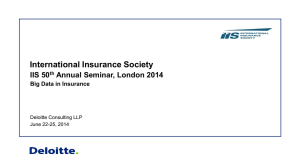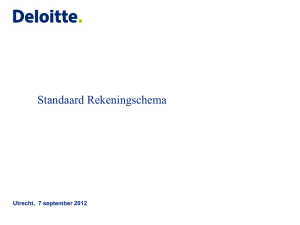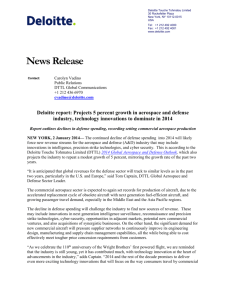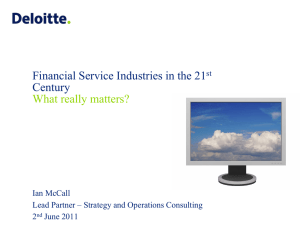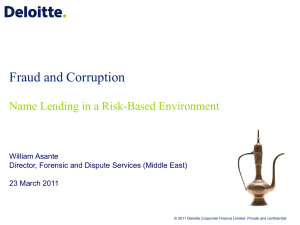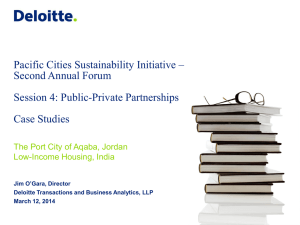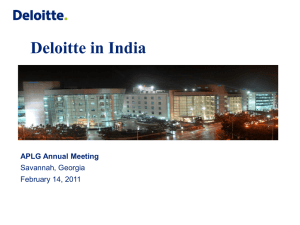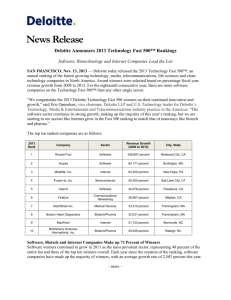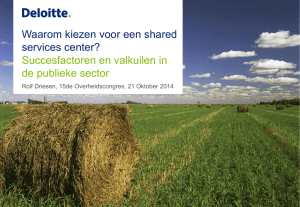Role of expert in international arbitration
advertisement
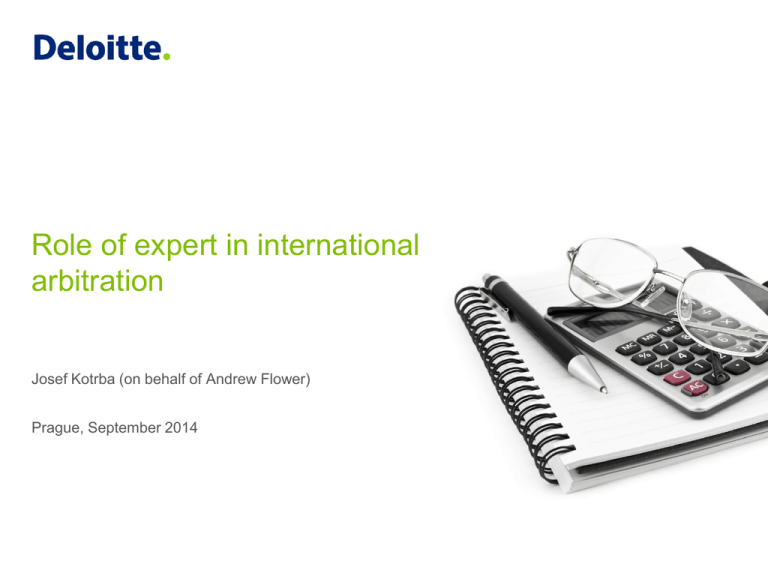
Role of expert in international arbitration Josef Kotrba (on behalf of Andrew Flower) Prague, September 2014 Who is the expert witness “Persons who are professionally acquainted with some science or are skilled in some art or trade, or who have experience or knowledge in relation to matters which are not generally known to the people.” Quoted from Miller v. Slate, 9 Okl. Cr. 255, 131, p. 717, 718, L.R.A. 1915A, 1088, cited in Black’s Law Dictionary, at n. 40. © 2014 Deloitte France 2 The role of an expert witness • Primary role: • Provide tribunal with independent and objective expertise with neutral view of case • Establish and measure economic losses (if any), value of a business • Present expert opinion with conclusions • Advisory/consultant role: • Role of case strategy consultant • Objective to maximize client’s interests; perform reasonable, defensible analysis • No requirement to be independent • Distinct from testifying expert witness © 2014 Deloitte France 3 The services provided by an expert witness • Primary services: • Identify and explain technical issues relating to valuation, accounting, finance and economics • Prepare expert report(s) – expert’s opinion on damages • Review other expert reports - provide commentary or critique • Attendance at hearing – oral testimony, cross-examination, witness conferencing, assistance during questioning of opposing expert • Other services: • Identify financial and accounting information needed to assess damages • Review documents, for relevance to financial matters • Obtain external information and conduct research (e.g. industry data) © 2014 Deloitte France 4 To enable effective outcome • Define the scope (recognizing this can shift) • Plan adequate time • Enquire as to availability re. key dates • Consider teaming with other experts e.g. industry © 2014 Deloitte France 5 Things to watch out for (I) • Mechanical/calculation/arithmetic errors • Use of unsupported or different assumptions • Double-counting • Reliance on management forecast without adequate due diligence • Unsupported or different facts relied upon • Interpretation of facts/information, different experience of experts • Provide opinion on matters outside of expertise (e.g. legal opinion) © 2014 Deloitte France 6 Things to watch out for (II) • Acting as an advocate rather than assisting the court/tribunal • Overly technical, not understandable by non-expert • “Reality” test – does not assess the overall reasonableness of conclusions, evaluate quantum of loss as a whole • Does not consider other methods of quantifying loss as a ‘cross check’ • Inflexibility / unwillingness to acknowledge errors, weaknesses • Invention of new valuation methodologies! © 2014 Deloitte France 7 Testimony (II) • Preparation • Brief direct examination • Anticipate cross-examination questions • Draft cross-examination questions for opposing expert • Signal for issues on re-direct • Use of expert’s senior team © 2014 Deloitte France 8 Strategies and Practical Tips for Working With Experts (I) • Often useful to appoint the expert from the outset • Expert can identify key weaknesses in assumptions over damages/ valuation • Can give initial estimate as to likely loss/ valuation • Assistance with production of documents • Avoid false economies • Selecting the right expert • Substantive expertise and the wherewithal to deliver within the process • Set realistic deadlines / timetables • Unrealistic deadlines have cost/ efficiency implications • Scope for errors increase © 2014 Deloitte France 9 Strategies and Practical Tips for Working With Experts (II) • Preserving the expert’s independence • The expert ‘s opinions are their own • The expert ‘s opinions need to be built on a firm factual and legal foundation • Communication is key • Throughout the process • Interaction with other experts • Cost management • Limit the number of ‘alternative scenarios’ • Plan adequate time • Accessibility of the client • Access to client data © 2014 Deloitte France 10 Deloitte refers to one or more of Deloitte Touche Tohmatsu Limited, a UK private company limited by guarantee (“DTTL”), its network of member firms, and their related entities. DTTL and each of its member firms are legally separate and independent entities. DTTL (also referred to as “Deloitte Global”) does not provide services to clients. Please see www.deloitte.fr/about for a more detailed description of DTTL and its member firms. Deloitte provides audit, tax, consulting, financial advisory and legal services to public and private clients spanning multiple industries. With a globally connected network of member firms in more than 150 countries and territories, Deloitte brings world-class capabilities and high-quality service to clients, delivering the insights they need to address their most complex business challenges. Deloitte's more than 200,000 professionals are committed to becoming the standard of excellence. © 2014 Deloitte France
